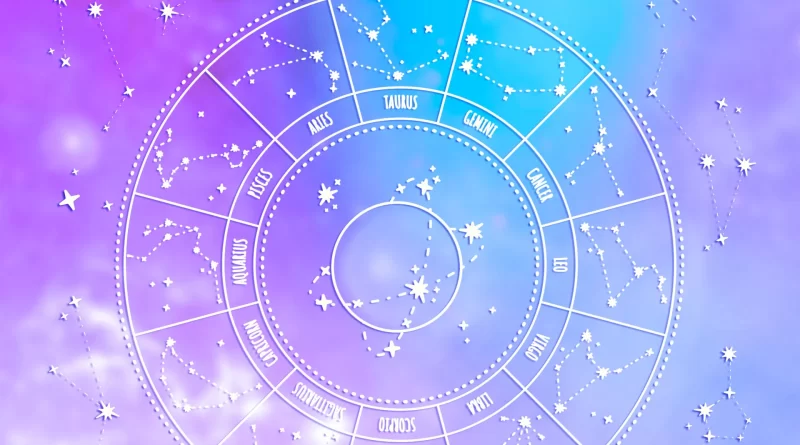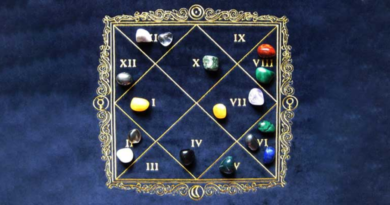The Role of Planetary Transits in Shaping Your Destiny
Introduction
In the intricate tapestry of astrology, planetary transits serve as dynamic threads weaving through our lives, influencing our experiences, decisions, and personal growth. These celestial movements, as planets journey through the zodiac, interact with the positions of planets in our birth charts, activating energies that can manifest in various aspects of our lives. Understanding these transits offers profound insights into the timing of events and the unfolding of our destiny.
Understanding Planetary Transits
Planetary transits occur when a planet moves across a specific point in the zodiac, forming aspects with the positions of planets in an individual’s natal chart. These aspects can be harmonious or challenging, each bringing its unique influence. The impact of a transit depends on the nature of the planet involved, the aspect formed, and the areas of life governed by the affected natal planets.
The Influence of Major Planetary Transits
1. Sun Transits
The Sun’s transit through the zodiac occurs approximately every 30 days, marking the passage through each zodiac sign. These transits highlight different themes and areas of focus in our lives, corresponding to the house the Sun is transiting in our natal chart. For instance, a Sun transit through the 10th house may emphasize career and public image.
2. Moon Transits
The Moon moves swiftly, changing signs every 2.5 days. Its transits are associated with our emotional responses and daily moods. While brief, Moon transits can trigger significant emotional reactions, especially when forming aspects with natal planets.
3. Mercury Transits
Mercury, the planet of communication and intellect, transits each sign for about 2-3 weeks. These periods influence our thought processes, communication styles, and decision-making abilities. Mercury retrograde phases, occurring three to four times a year, are known for potential misunderstandings and delays.
4. Venus Transits
Venus governs love, beauty, and finances. Its transits, lasting about 3-4 weeks per sign, affect our relationships, aesthetic preferences, and financial matters. A Venus transit over a natal planet can enhance charm and attract positive social interactions.
5. Mars Transits
Mars, representing energy and drive, spends about 6-7 weeks in each sign. Its transits can boost motivation, assertiveness, and physical energy. However, challenging aspects may lead to impatience or conflicts.
6. Jupiter Transits
Jupiter’s transits, lasting approximately one year per sign, are associated with growth, expansion, and opportunities. These periods can bring optimism and a desire for exploration. However, excessive expansion without caution can lead to overindulgence.
7. Saturn Transits
Saturn, the taskmaster of the zodiac, spends about 2.5 years in each sign. Its transits are times of structure, discipline, and lessons. While challenging, Saturn’s influence encourages maturity and responsibility.
8. Uranus Transits
Uranus, the planet of innovation and sudden change, takes about 7 years to transit each sign. Its influence brings unexpected shifts, urging us to embrace new perspectives and break free from outdated patterns.
9. Neptune Transits
Neptune’s transits, lasting about 14 years per sign, are associated with dreams, spirituality, and illusions. These periods can heighten intuition and creativity but may also blur reality, leading to confusion if not grounded.
10. Pluto Transits
Pluto, the planet of transformation, spends 12 to 31 years in each sign. Its transits signify deep, transformative processes, often involving power dynamics, rebirth, and profound personal evolution.
Planetary Transits and Personal Growth
Planetary transits act as cosmic catalysts, prompting us to evolve and align with our higher selves. By understanding the nature of these transits, we can navigate life’s challenges and opportunities with greater awareness and intention.
Navigating Challenging Transits
While some transits bring ease and harmony, others may present obstacles. Challenging transits, such as squares or oppositions, often signal periods of tension or conflict. However, these times also offer opportunities for growth and self-discovery. Embracing the lessons of difficult transits can lead to significant personal development.
Embracing Beneficial Transits
Favorable transits, like trines and sextiles, provide supportive energies that can be harnessed to advance goals and foster positive change. Recognizing and utilizing these periods can enhance personal and professional endeavors.
The Role of Free Will
Astrology provides a map of potential influences, but it does not dictate our choices. Free will remains a central tenet, empowering individuals to respond to transits in ways that align with their values and aspirations.
Frequently Asked Questions (FAQs)
Q1: What are planetary transits in astrology?
A1: Planetary transits refer to the movement of planets through the zodiac and their interactions with the positions of planets in an individual’s birth chart, influencing various life aspects.
Q2: How do planetary transits affect my daily life?
A2: Transits can impact emotions, decision-making, relationships, and career developments, depending on the planets involved and the areas of life they influence in your natal chart.
Q3: Can I predict events in my life using planetary transits?
A3: While transits indicate potential energies and themes, they do not predict specific events. They offer insights into favorable times for action or reflection.
Q4: How long do planetary transits last?
A4: The duration varies: the Moon transits signs every 2.5 days, while outer planets like Pluto can spend years in a single sign.
Q5: What is a retrograde transit?
A5: A retrograde occurs when a planet appears to move backward in the sky from our perspective, often signaling a time for review and reassessment in the areas that planet governs.
Q6: How can I prepare for challenging transits?
A6: Awareness is key. Understanding the nature of the transit allows you to approach challenges with mindfulness, patience, and adaptability.
Q7: Do planetary transits affect everyone the same way?
A7: No, the impact of a transit depends on your unique birth chart. The same transit can have different effects on different individuals.
Q8: Can transits influence my relationships?
A8: Yes, transits involving Venus, Mars, or the Moon can significantly affect relationship dynamics, prompting growth or highlighting issues.
Q9: Are some transits more significant than others?
A9: Transits involving outer planets or forming exact aspects to key points in your natal chart tend to have more profound and lasting effects.
Q10: Should I make major life decisions based on transits?
A10: While transits can provide guidance on timing, decisions should also consider practical factors and personal readiness.
Conclusion
Planetary transits serve as celestial signposts, guiding us through the journey of life. By attuning to these cosmic rhythms, we can align our actions with the prevailing energies, fostering personal growth and fulfillment. Embracing the insights offered by transits empowers us to navigate life’s ebbs and flows with greater clarity and purpose.


